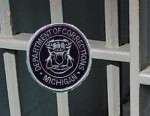The federal agency responsible for enforcing labor laws is taking Starbucks to court this week in Grand Rapids alleging that the company unlawfully terminated an employee for union activities.
Cole Dorsey, a barista at the Starbucks at 2172 Wealthy St. in East Grand Rapids and a organizer with the International Workers of the World Starbucks Workers Union, was fired June 6.
“On the basis of an investigation that we preformed,“ said Stephen Glasser, regional director of the National Labor Relations Board, “we allege this employee was terminated because of his union activities.”
The NLRB claims that Starbucks posted an overly broad sign banning distribution of printed information without manager approval; coercively interrogated employees about their attitude toward the union, and fired Dorsey in order to discourage other employees from exercising their rights to work together to improve the conditions on the job and take collective action.
The trial, which begins Wednesday, focuses only on the firing of Dorsey. The NLRB is asking that Starbucks reinstate Dorsey and compensate him for lost wages.
In an statement e-mailed to Michigan Messenger, a spokesperson for Starbucks denied that Dorsey’s firing was related to his union activity:
“Starbucks separated the partner, a barista in Grand Rapids, MI, after he was more than 30 minutes late, weeks after he had been placed on a second final written warning and told that further instances of tardiness would result in separation. The NLRB Complaint alleges that the partner’s separation was due in part to his activity on behalf of the IWW. We believe this charge is without merit.”
The coffee giant has faced a string of unfair labor practice charges in recent months. In August, a Minneapolis Starbucks reinstated worker Erik Forman after he filed a complaint with the NLRB charging that he’d been fired for his union organizing efforts. On Dec. 23, a New York administrative law judge with the NLRB ruled that a Starbucks stores in Manhattan maintained improper policies designed to thwart employees’ right to organize and had wrongly fired three workers.
Daniel Gross is one of the three New York Starbucks workers whose firing was deemed unlawful.
“Starbucks and its chairman and have shown a persistent animosity to workers’ efforts to have an independent voice on job,” said Gross who was fired in 2006. “And in the economic situation we are in presently Starbucks has only gotten more anti-worker.”
Gross said that a major concern among Starbucks workers is a recent program called Optimal Scheduling, which requires workers to make themselves available for large blocks of time but does not guarantee set schedules or numbers of hours per week, making it difficult to maintain other jobs and plan family life.
Gross called the ongoing case against Starbucks “inspiring” and “positive.”
“Even during intense union-busting, IWW is growing. Whether it is over scheduling or health and safety violations — whatever — we are taking action, winning on demands, and enjoying robust growth.”
The IWW’s Starbucks Workers Union has represented Starbucks workers since 2004 and claims over 300 members.




